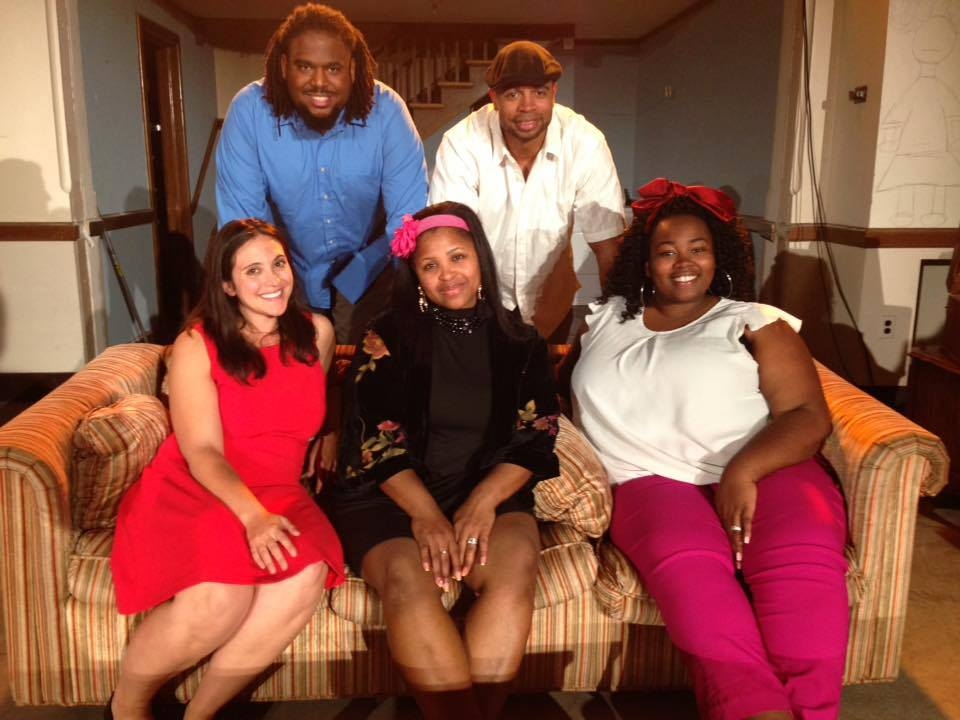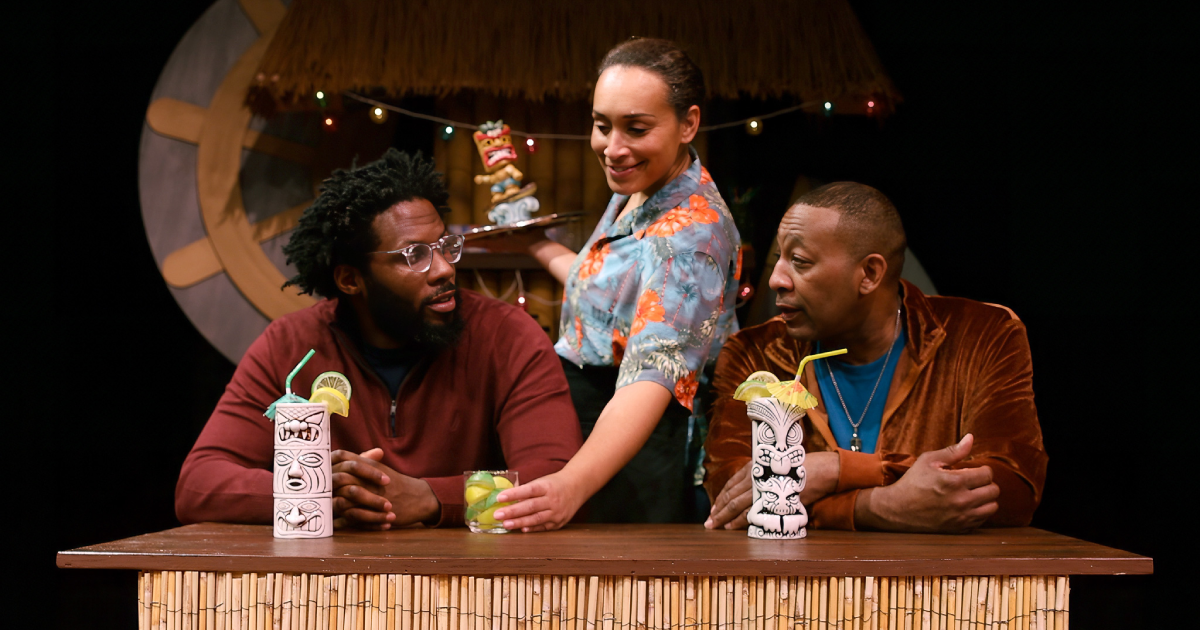A family simply trying to make ends meet is at the center of “Detroit ‘67,” a drama written by Dominique Morisseau and being performed by Grand Rapids’ Ebony Road Players. This year marks the 50th anniversary of the Detroit riots, and the community came out to see a show that strongly reflected the Motown era and, in many ways, eerily mirrored today’s society as well.
Lank and Chelle, brother and sister, are living in the house their parents passed down to them, where they turn their basement into a Detroit nightclub. At the time, it was especially common to see police (sometimes referred to as “pigs” in the show) finding any reason to stop a black person, and that was reflected in conversations throughout the show. Friends Sylvester and Bunny are along for the ride as well. When a mysterious white woman, Caroline, enters the household, everyone is thrown for a loop. And as tensions rise in the household, tensions rise even higher in the streets outside.
The show took place in this year’s SiTE:LAB, located at 415 Franklin St. The building, which used to be a high school, is empty and somewhat run-down, but provided a cool, artsy feel to the setting. The audience gathered around in chairs and even though those in the back couldn’t see very well, everyone was flexible and moved their chairs in order to see.
The five person cast was a perfect variety of personalities that bounced off each other and not only kept the audience emotionally intrigued (people leaning left and right to see what exactly was happening) but also laughing through the good and the bad. Tova Jones is a hilarious Bunny, whose humor bounces off David Nordé’s Lank for the two hour show. Syreeta Drake as Shelle has a certain attitude and ability to make the audience empathize with her feelings. The cast made use of the performance space and was loud enough to be heard in the back row without straying from a powerful performance.
Symbolically, the entire show is set in the basement of the house. Throughout the performance, the black characters express their discontent with the racial divide, and how white people, more specifically the white cops, are trying to keep them in a secondary place in society.
This very much reflects on the society we live in today, where some police are killing black people without reason or feeling. People now are protesting in the streets and during the national anthem because they’re sick of how society discards black lives — it’s been 50 years, and yet so little has changed since those five days in July.
What gave hope to the audience, though, were the strong relationships amidst all of the hate and violence. Family and friendship bonds could not be broken, not through racism, discomfort, financial trouble or even death. Maybe that’s what today’s society needs to see, the human aspect; that behind color, status, money, neighborhood, there is a person who means something to someone else, and that life matters. The message the play sends: Once black lives are seen as equally valuable, maybe society can move forward on the path to unity.
Detroit ‘67
Ebony Road Players
SiTE:LAB
415 Franklin St. SE, Grand Rapids
Oct. 6-14, $10-$40
ebonyroad.org





